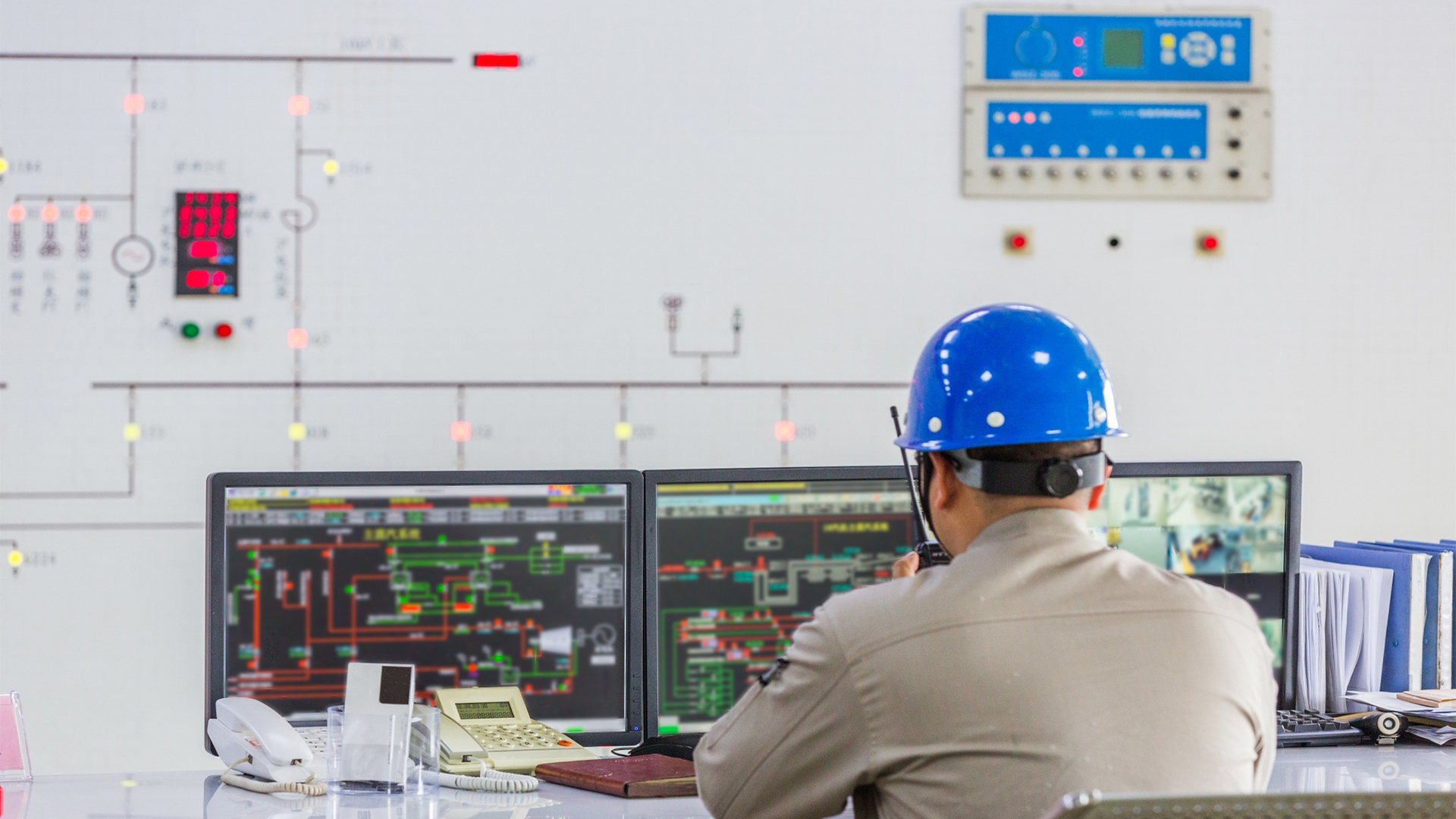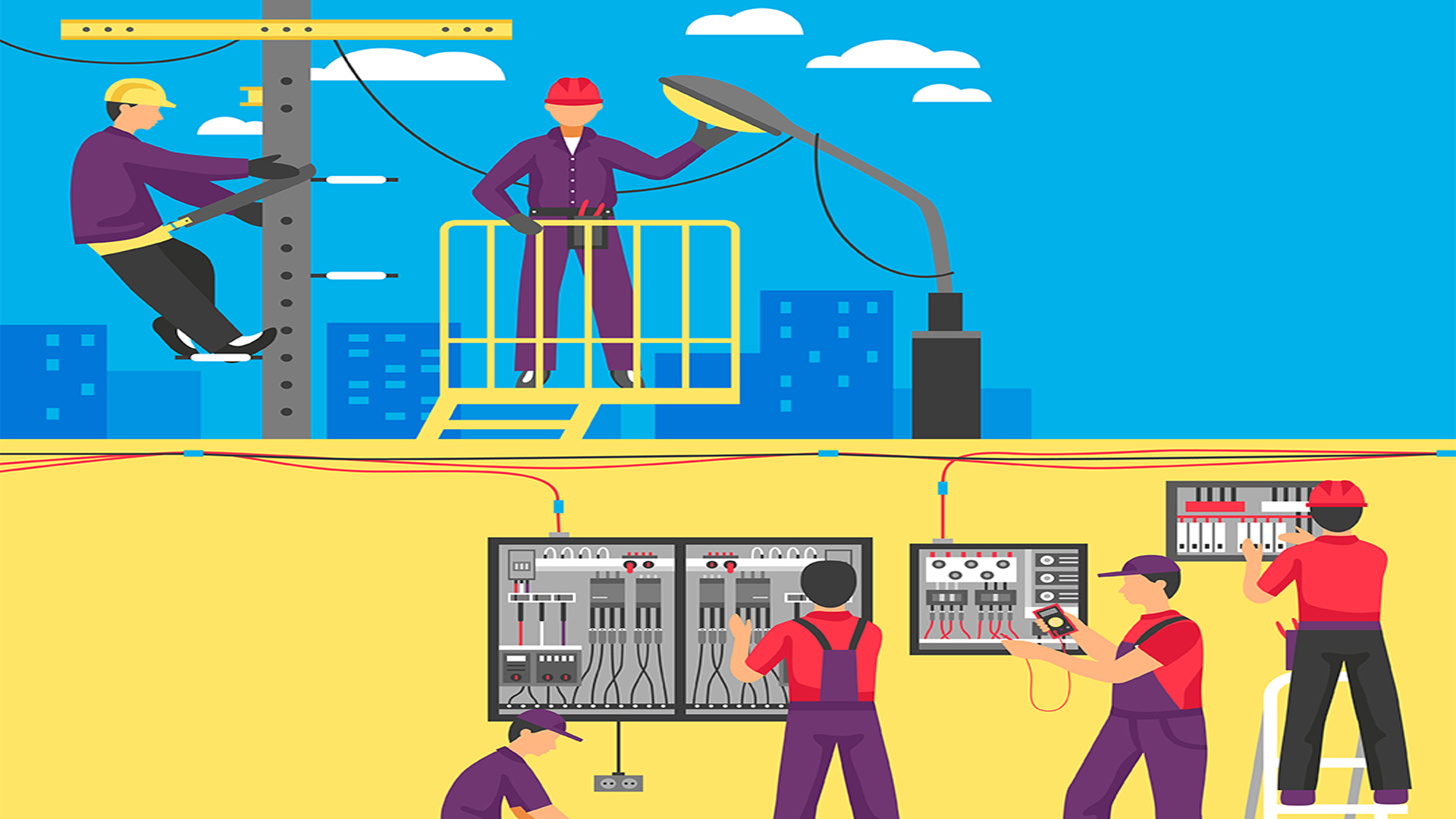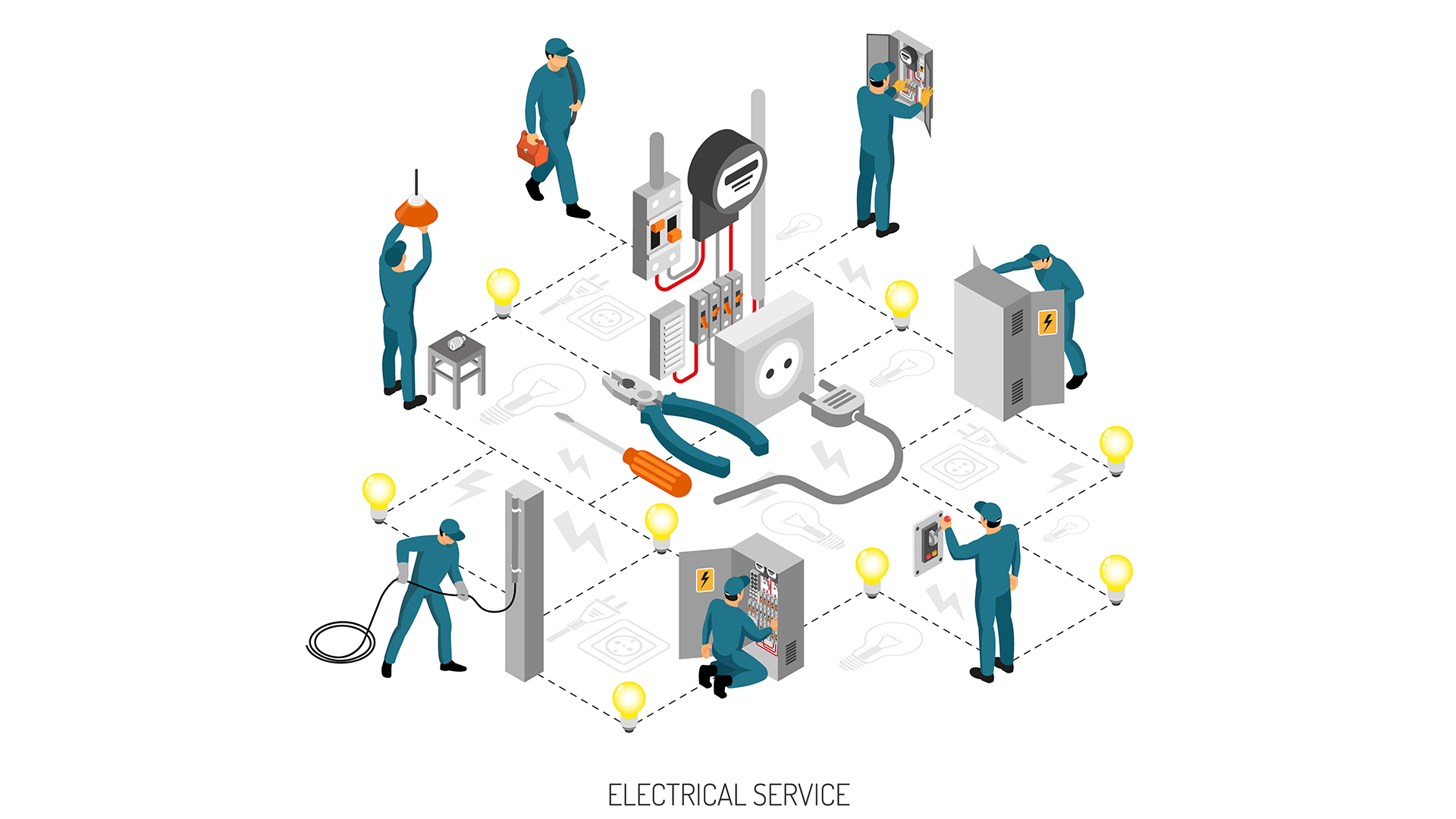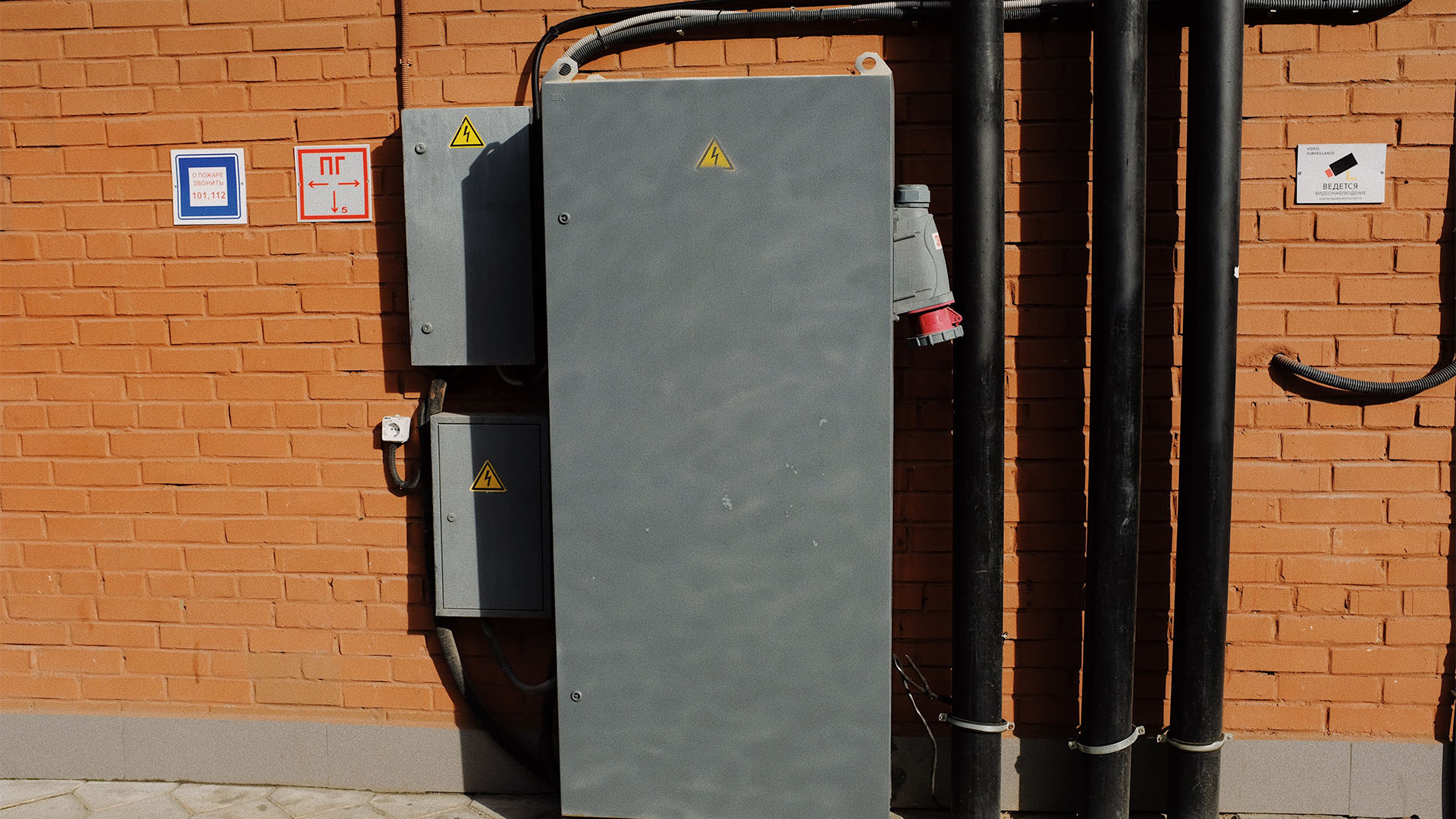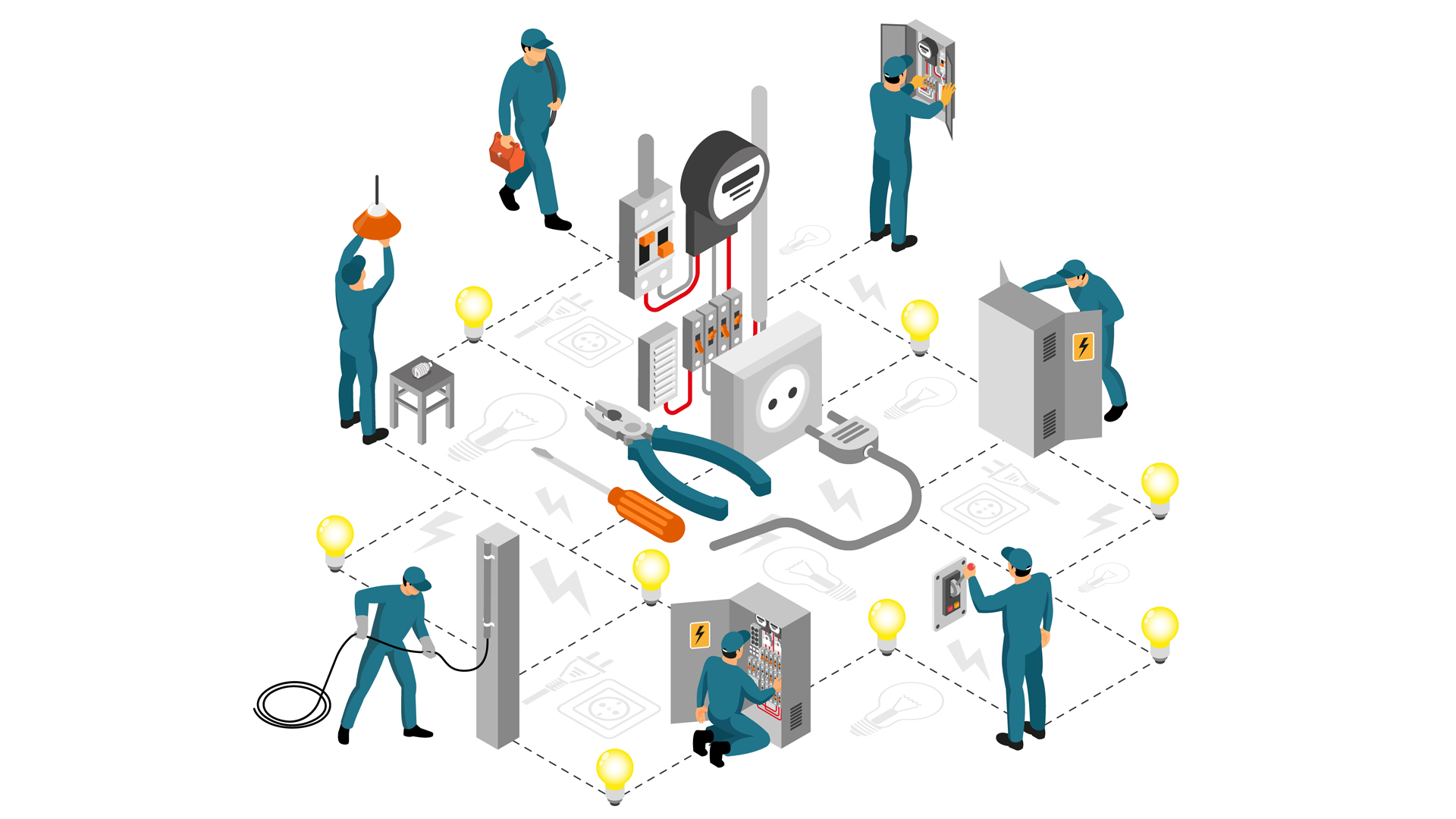
The Power Plant Mastery
Course overview
A power plant is a type of engineering facility that converts energy from various sources into electricity with the help of one or more generators. Boilers, turbines, generators, and any auxiliary equipment in power-generating plants are controlled and supervised by power plant operators.
Additionally, these operators split up power demands among several generators, combine power from generators, and keeps an eye on equipment to maintain voltage and control electricity flowing from the plant.
This training program provides an understanding of the fundamental concepts as well as specific in-depth information on the operation, management, fabrication, and composition of the most common types of fossil-fueled power plants, such as thermal, gas, and diesel power plants.
To broaden the participants’ expertise in the field, the program also offers an insight into the theories and ideas of electrical and mechanical engineering, electrical machines and electrical drives, thermodynamics, etc.
This training course not only provides a thorough understanding of the control variables used in power plants and instrumentation techniques, but it also covers the techniques for monitoring and controlling processes as well as the operation of control valves, sensors, actuators, heat exchangers, compressors, and other equipment.
Power plants and transmission stations provide a particularly significant risk, thus employees should be ready to operate in such dangerous settings. Operators may be at risk for electric shocks, falls, or burns when doing their duties within or outside the control room. It is crucial to understand the steps to take in order to avoid such accidents.
What subject matter will you learn about in the “Certified Power Plant Operator” course? In-depth discussions on topics including power generation theory, industrial power plants, processes, and control techniques, power plant operation and selection criteria, thermal, gas, and diesel generation, and the fundamentals of electric machines and control devices will be covered in this program.
Participant’s ability to operate power plants intelligently will be enhanced by this Training Bee training course, lowering the likelihood of mistakes brought on by a lack of understanding and awareness in the field.
Introduction
Training Bee will provide you with the knowledge and abilities required to become a competent and certified power plant operator in this extensive curriculum. You will be a key player in producing electricity and ensuring a steady supply of energy for communities and businesses as a power plant operator.
Modern society depends heavily on the power generation sector, and there is a rising need for qualified power plant operators. You will be ready for the dynamic challenges and responsibilities associated with operating and maintaining power plants after completing this certification course.
Participants will examine the various types of power plants and their various operational procedures as you progress through the course, learning about the fundamental theories underlying the production of electricity. You will obtain a grasp of the fundamental parts of a power plant and how each contributes significantly to the production, transmission, and distribution of electricity.
Power plant operations place a high priority on safety, and you will receive thorough training on recommended practices, security measures, and emergency protocols. Your capacity to manage potential risks and react appropriately in urgent situations will be improved, protecting the safety of you, your coworkers, and the neighborhood.
We are The Training Bee, a global training and education firm providing services in many countries. We are specialized in capacity building and talent development solutions for individuals and organizations, with our highly customized programs and training sessions.
Learning Objectives
Upon completing Certified Power Plant Operator, participants will be able to:
- Learn the basic principles of power plant technology.
- Understand how power plants work.
- Examine control diagrams and procedures connected to power.
- Learn about the various power plant features, selection criteria, and optimization methods.
- Learn about power plant control processes, maintenance routines, and troubleshooting techniques.
- Understand the power plant’s characteristics, problems, and control methods.
Our Unique Training Methodology
This interactive course comprises the following training methods:
- Journaling – This consists of setting a timer and letting your thoughts flow, unedited and unscripted recording events, ideas, and thoughts over a while, related to the topic.
- Social learning – Information and expertise exchanged amongst peers via computer-based technologies and interactive conversations including Blogging, instant messaging, and forums for debate in groups.
- Project-based learning
- Mind mapping and brainstorming – A session will be carried out between participants to uncover unique ideas, thoughts, and opinions having a quality discussion.
- Interactive sessions – The course will use informative lectures to introduce key concepts and theories related to the topic.
- Presentations – Participants will be presented with multimedia tools such as videos and graphics to enhance learning. These will be delivered engagingly and interactively.
Training Medium
This Certified Power Plant Operator training is designed in a way that it can be delivered face-to-face and virtually.
Course Duration
This training is versatile in its delivery. The training can be delivered as a full-fledged 40-hour training program or a 15- hours crash course covering 5 hours of content each day over 3 days
Pre-course Assessment
Before you enroll in this course all we wanted to know is your exact mindset and your way of thinking.
For that, we have designed this questionnaire attached below.
- What is a power plant operator’s main duty and what are the main duties included with this position?
- Describe the fundamental concepts behind energy production as well as the key elements of a typical power plant.
- The main safety guidelines and procedures that power plant operators must adhere to both in normal operations and emergency situations are listed and explained.
- How can a power plant operator help to make sure that environmental regulations are followed and that operations are sustainable?
- Talk about the idea of grid stability and the part a power plant operator plays in keeping the electrical system stable.
- What are the main categories of power plants, and what distinguishes them in terms of the energy sources and workings?
Course Modules
This Certified Power Plant Operator covers the following topics for understanding the essentials of the Agile Workplace:
Module 1 – MECHANICAL AND ELECTRICAL ENGINEERING PRINCIPLES
- Actuators and sensors
- Blowers, fans, turbines, pumps, and compressors
- Hydraulics and pneumatics
- Cylinders and control valves with electrical actuation
- Heat transfer theory
Module 2 – POWER STATION FOR GAS
- An overview of gas-powered plants
- Thermodynamics and the fundamentals
- Gas turbine parts
- Systems for building, lubrication, fuel, and auxiliary systems
Module 3 – Thermoelectric Station
- A description of thermal power plants
- The processes of generating steam and burning fuel
- Operation, controls, and boiler auxiliary plant
- Boilers and electricity production
- Recovery of waste heat
Module 4 – BASE FOR DIESEL GENERATOR POWER
- Engine kinds, power plant types and components
- Engine categories and technologies
- Construction, protection, insulation, and DG type
- Assemblies and components for DG sets
Module 5 – CONTROL & PROCESS INSTRUMENTATION
- Basics of process control
- Measurement and management of flow, level, pressure, and heat
- Digital controllers
- Diagram of the process (PFD), P&ID, and transfer function
- Closed-loop and open-loop controllers
Module 6 – ORGANIZATION AND MANAGEMENT OF PLANT OPERATIONS
- Operations of the plant’s activities and functions.
- Operative procedure.
- Human resources and personnel qualifications.
- Standards and objectives for performance.
Module 7 – COMPLEMENTS AND FUNCTION SHIFT
- Operators shift supervisors
- Engineer or technical adviser on call for safety
- Technical support staff that works shifts
Post-course Assessment
Participants need to complete an assessment post-course completion so our mentors will get to know their understanding of the course. A mentor will also have interrogative conversations with participants and provide valuable feedback.
- What are the main duties of a power plant operator, and how do they affect the facility’s general effectiveness and safety?
- Explain the key parts of a power plant and how each one contributes to the production of electricity.
- List and describe the safety guidelines and procedures you would adhere to in a variety of operational circumstances, such as regular business and crisis situations.
- How can managers of power plants ensure environmental compliance and address issues with sustainability?
- Talk about how a power plant operator keeps the system stable and how supply and demand for electricity is balanced.
- Compare and contrast various power plant types in terms of their energy sources, benefits, and drawbacks, such as coal-fired, natural gas, nuclear, and renewable
Lessons Learned
Comprehensive Knowledge: Participants in the Power Plant Operator certification course leave with a thorough understanding of power plant operations, including the fundamentals of electricity production, safety procedures, environmental compliance, and grid stability. Participants obtain a thorough understanding of the numerous elements and procedures involved in the production of efficient and secure power.
Safety First: When operating a power plant, safety comes first. The importance of operators in guaranteeing the safety of the plant, its workers, and the neighborhood is highlighted by power plant operator certification. Participants are taught how to adhere to stringent safety regulations and emergency procedures to avoid mishaps and successfully handle any dangers.
Operators of power plants have a significant responsibility to protect the environment. Participants in the certification program learn about the effects power generation has on the environment and about strategies to reduce emissions, increase energy efficiency, and encourage sustainable practices.
Power plants operate in dynamic contexts where unforeseen difficulties can occur. Adaptability and troubleshooting. The Power Plant Operator certification provides candidates with the problem-solving abilities and troubleshooting methods needed to efficiently manage equipment failures and unforeseen circumstances.
“Illuminating Information: Graduates with Power Plant Operations Certification”
